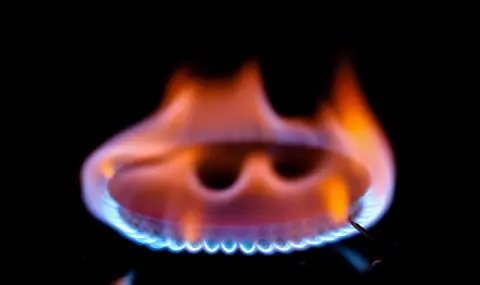The European Union will have enough gas in storage next winter, and other buyers of Russian pipeline gas in Central Europe are working on alternative imports in case transit through Ukraine stops, Reuters reported, citing analyst data.
European gas prices fell to levels seen before Russia's full-scale invasion of Ukraine in February 2022, hitting a three-year low in February, as mild weather and high renewable energy output curbed gas demand and reduced the amount of gas to be be taken from the repositories.
"The agreement signed in 2019 between the Ukrainian "Naftogaz" and Russia's Gazprom, which allows Russian gas to flow through Ukraine, expires at the end of the year, raising new concerns about potential disruptions to gas supplies to Europe.
Earlier, Ukraine said it did not plan to extend the agreement, although it was unclear whether there would be a loophole through which European companies would be able to reserve transit capacity themselves, avoiding a direct agreement between Russia and Ukraine, the agency recalled.
By the end of the winter gas season, which ends on March 31, European gas storage is 59% full, a record for this time of year, according to Gas Infrastructure Europe.
"Europe is on course for a new record high level of gas stocks at the start of the summer and it looks like the continent will be on track again to fill its storage at the start of next winter," said James Waddle, head of European gas and global LNG. in the consulting company Energy Aspects.
According to an EU decision established after Russia's full-scale invasion of Ukraine, European gas storage facilities must be 90% full by November 1.
Gas stored in storage typically accounts for around a quarter of Europe's winter gas consumption, where it is the main heating fuel, and high reserve levels should ensure Europe has enough gas to meet supplies through next winter and avoid sharp price shocks.
The most vulnerable EU countries are Austria and Slovakia, as they still import much of their gas from Russia via Ukraine, but even they say they are working on new sources of supply to limit the impact in the event of a supply disruption .
In 2024, "Gazprom" it will normally deliver about 40 million cubic meters of gas per day via transit routes through Ukraine, which, if supplies are maintained, will amount to 14 billion cubic meters per year, or about 3.5% of total EU demand.
About half of this gas comes to Austria via pipelines through Ukraine and Slovakia. Austrian energy company OMV said it had prepared for scenarios where Russian gas supplies would be cut off.
A representative of the company told Reuters that the company has signed a long-term contract for the regasification of liquefied natural gas (LNG) at the Gate terminal in Rotterdam.
Without Gazprom! The EU will have enough gas in storage next winter as well
Europe is on course for a new record high in gas stocks at the start of summer, and it looks like the continent will be on track again to fill its storage early next winter
Apr 2, 2024 10:10 208
